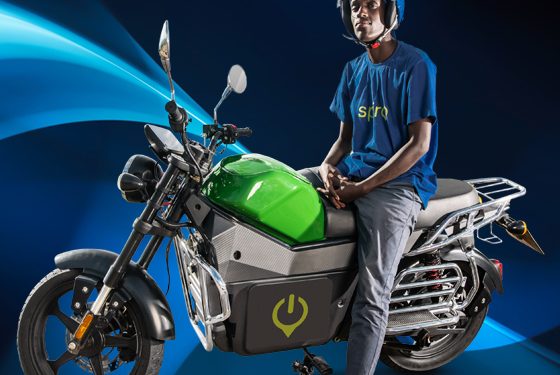Spiro, the largest EV assembly line in Africa, has sold over 1,500 electric bikes in Nairobi and Mombasa since September last year.
- In an interview with The Kenyan Wall Street, Deputy Country Head of Spiro Kenya – Raymond Kitunga – also said that the firm had expanded their operations to the newly-gazetted city, Eldoret.
- Since 2022, Spiro’s footprint in Africa has grown remarkably; staking a formidable presence in Kenya, Togo, Benin, Rwanda, Nigeria, and Uganda.
- Spiro Kenya’s goal is to make electric bikes affordable to the general population, enabling efforts in phasing out internal-combustion engine (ICE) cars and offsetting carbon emissions.
“If you look at the general behavior of the market, and the numbers, more and more people are becoming more enlightened about EVs. People are realising that this is a fantastic vehicle to own because it is affordable in the long run, than the normal internal-combustion engine,” Raymond Kitunga said in an interview with Investing Like An Executive.
Spiro electric bikes can enable riders to earn 35 – 40% more than fuel-powered bikes. Swapping batteries at only KSh 290 helps its riders to save costs. The battery life of these electric bikes lasts at an average of 75 – 80 kilometres. This distance is comparable to 2 litres of fuel consumption, which costs almost twice the swap.
Purchasing EVs can be expensive and the upfront costs can hinder adoption. In every EV forum and conference, stakeholders in the sector are always discussing about ways to bring down prices. Long-term strategies such as opening up markets for more assembly lines and cheapening materials used in EV manufacturing have been pinned.
Meanwhile, Spiro is on a collaboration quest with commercial Banks, government agencies, and asset financiers. Working with these entities could help subsidise costs and enlist brilliant payment alternatives such as leasing and renting options for riders.
“We wanted to position ourselves as the best alternatives to ICE. The key here was the daily repayment by the sector; people were pushing for more affordable, daily instalments as opposed to weekly or monthly,” Kitunga said.
Spiro also owns the batteries of its electric bikes to push down the costs of buying a bike. This is to ensure that these batteries are safely stored, maintained regularly, and save the customers effort and time that would have been allocated to these endeavours.
“We wanted to take off that headache of a customer wanting to have a battery, which we know after sometime, will be depleted; we keep it so we can have an inventory where we can better manage these batteries,” Kitunga said.
Kitunga also stated that Spiro Kenya stood out in the rapidly growing EV market as a company that immensely valued research and development based on obtained data. By understanding the specific accessories needed by boda boda riders in their diverse markets, they are able to better satisfy demand and customer preferences.
“We have done our research and development not only on the bikes themselves but to even understand the customer trait; what the customer really wants and how affordable it should be compared to other bikes,” Kitunga noted.
With 92% of vehicles sold in Kenya being two-wheelers, the deputy director believes that there is an opportunity for Spiro to carve out a more profitable customer base in the near future. Scaling up to frontier markets by employing geo mapping and creating charging infrastructure in those areas will be a profound boost.
“We are a data-driven company and for every investment, we would want a particular threshold to be met for it to be more profitable. This is tied up with the bikes on the road and batteries that are within that particular area so that we are not only investing widely but investing rightly,” Raymond Kitunga said.
In May this year, Spiro bagged KSh 6.5 billion loan from the Afreximbank to expand its footprint in the continent. The agreement signed in Kigali, Rwanda bolstered the company’s coffers, supplementing the KSh 8.2 billion they got last year from Societe Generale. The company operates 600 battery swapping stations in Africa.




